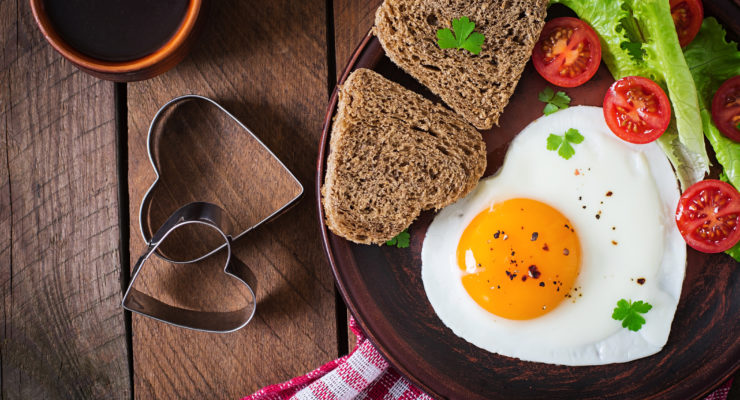If you’re trying to lose weight, the weekend can be a minefield. That’s because for many, being away from work also pulls them away from their plan. Research suggests that a large percentage of both men and women overindulge on the weekends, some even consuming 10,000 extra calories over the course of two days. But the end of a work week comes with many temptations and leaves us wondering how to stop eating so much on weekends.
Don’t let two days undo five days of smart choices and hard work. All it takes is what gives you that success during the work week: A plan. Make that even better by doing a bit of plan-ning.
Check out these six strategies to learn how to stop eating so much on weekends:
1. Plan your wake-up call: Set your weekend alarm for the normal time.

This one is a no-brainer when learning how to stop eating so much on weekends. It sounds like torture, but avoid the temptation to sleep in. Shifting your wake-up time by even a few hours can lead to a “jet lag”-like experience, even if you don’t fly. In one study conducted by Örebro University, 2,700 high school students who shifted their sleep on weekends experienced a dip in performance and a disrupted sleep schedule the rest of the week. And that disrupted midweek schedule could sabotage your weight loss results: Losing as little as 30 minutes of sleep each weekday can result in weight gain and increase your risk of Type 2 diabetes.
So set Saturday and Sunday’s alarms for the normal time. Brew up an extra cup of coffee to get through it, and you’ll sleep better—and have better weight loss results—the rest of the week. Plus, if you need it, you can take a mid-afternoon nap.
2. Plan a protein-rich breakfast.

When you start the day with protein, you may eat fewer high-fat foods and snacks the rest of the day—without even trying. That was the finding of a 2013 study published in the American Journal of Clinical Nutrition, where females ate either 35 grams of protein for breakfast, 13 grams, or skipped the meal all together. Those eating the most protein had the longest feelings of fullness throughout the day. And that’s not surprising: Protein takes longer to digest, so you feel fuller, longer than you would with a fast-digesting breakfast of carbs.
3. Hanging with friends? Plan an activity that isn’t focused on food.

Many friendly get-togethers fall prey to the “what are we going to do?” syndrome: No one’s decisive, and you wind up at the same old haunts—probably eating. Take charge: Use some midweek time to come up with some non-food-focused options for you and your friends. It can even be active: Do some research for the best places to hikes, parks to visit and free museums in your hometown. Find one you haven’t been to in a while—or haven’t tried before—and catch up with everyone somewhere that isn’t just slinging grease.
4: Plan out your munchies in advance.

Whether you think you might spend part of the weekend curled up on the couch to binge-watch, or if you’re going to be running the kids from one event to another, chances are you’ll snack. According to Mintel, research has shown that 94 percent of Americans now snack every day. Those snack calories can be a danger: If you’re on the couch, you could wind up mindlessly munching something you weren’t planning to eat at all. And if you’re on the road, you may have to grab whatever’s fast and convenient—often something high in calories and sugar.
So plan ahead: Spend some weekday time chopping up vegetables and fruits into pre-portioned, bite-sized pieces and putting them in containers to stock the fridge. Having them available means that you’ll be able to make healthy choices more easily, and the act of cutting the vegetables could help you lose weight on its own. And don’t forget to stock up on your favorite Nutrisystem snacks. They’re perfect to grab on-the-go, and they’ll keep you on track with your healthy diet.
If you don’t have tons of time to prep, or if you want something that’s easier to pack, Nutrisystem makes it easy. The plan includes delicious pre-portioned snacks, many of which are your favorite munchies, anyway—cheese popcorn, chocolate-covered granola bars, cookies and crackers.
5: Make a going-out game plan: Look at Saturday’s menu now.

If you’ve got dinner plans, arm yourself with information from our Dining Out Guide before the waiter hands you the menu. Look at the restaurant’s offerings online on Friday so you can pick out a meal that’s fits into your healthy diet. It’s also easy to specially request a balanced meal containing PowerFuels, SmartCarbs and veggies! Most restaurants will be happy to accommodate you.
If the meal is planned as a meal with Extras, find the thing you’re really craving ahead of time, so you’ll be extra-satisfied with your order. Either way, you’ll know going in what you’re ordering—so you can be confident and won’t be left wondering how to stop eating so much when out to eat.
6. Plan to order a water with every drink.

Nutrisystem plans ask that you abstain from alcohol during week 1 and keep your alcohol intake to two servings per week for the remainder of your time on Nutrisystem. We also suggest sticking to light beer or dry wine. If you do decide to indulge in a serving of alcohol, be sure to order a water with your drink. Sipping water between each alcoholic beverage really does help you metabolize the alcohol, so you don’t get as buzzed. And while that might sound like a, well, buzzkill, it also can help you stave off cravings for foods or portions that aren’t on plan. Being tipsy really does make those cheat foods more appealing: A 2015 study of 35 women published in Obesity Society found that those who had alcohol in their systems had more sensitive brain responses to food aromas and wound up eating more food than the study participants who were sober. Long story short—reduce your alcohol intake for a simple trick to learn how to stop eating so much on the weekends!
Stay on track even on weekends with the help of a Nutrisystem meal plan. Get started today! >
The post How to Stop Eating So Much on the Weekend appeared first on The Leaf.




Comments
Post a Comment